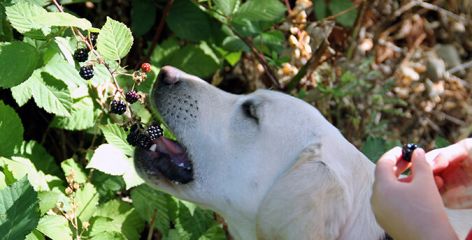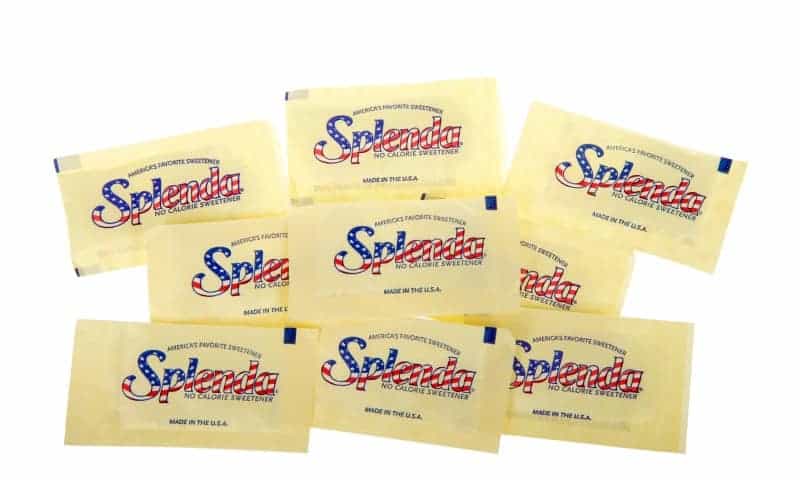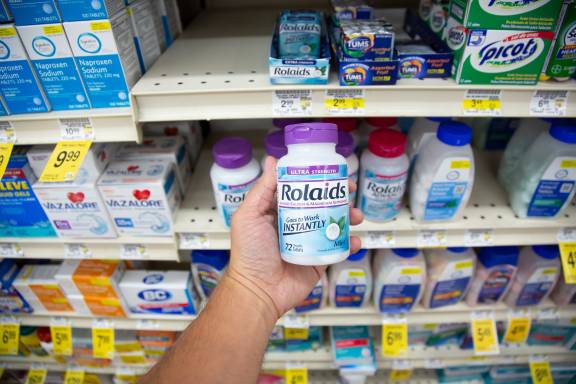Dogs are scavengers, which means they’ll eat almost anything that smells like food! What dog doesn’t love to eat fat or fatty foods? Some dogs have been known to raid the grease bucket on a smoker or gain access to bacon grease and more! But what happens if a dog eats grease?
Connect with a verified veterinarian in minutes. Licensed vets are available 24/7 to answer your questions. No need to worry about your furry family member.
Has your dog eaten some grease? Are you worried the grease will make your dog sick? If so, then you’ve come to the right place!
In this article, we’ll take a look at what happens when dogs eat grease and what you need to do when this happens. Let’s get started!
How Can Dogs Gain Access to Grease?
Grease is produced by cooking various types of foods. Maybe you fried up some potatoes and then put the leftover grease into a container, which was then thrown into the trash. Or it could grease that was caught in the grease trap of your outdoor grill. This makes grease accessible to a dog.
Dogs love anything that smells like food. Remember those steaks you cooked the other night on the grill outside? Or maybe you fried up some meat and veggies in the house. Whatever it was, the grease can pick up the smells from the food that was cooked. This will draw the dog’s nose, make him think it smells like food, and then he eats it.
It can be this simple! Dogs are notorious for not having much discretion when it comes to what they eat. They’ll eat all kinds of things. When it comes to grease, it really is probably the smells from the foods that were cooked. This will draw your dog to eat grease.
Is Grease Toxic to Dogs?
The good news is that grease is not toxic to dogs. It usually consists of cooked animal fats that have been cooked. However, it could be high in salt and contain seasonings that are toxic to dogs (such as onion or garlic powder).
The problem is that large amounts of grease cause irritation to the dog’s digestive system. Some symptoms that may appear in the beginning include diarrhea and vomiting. Over time, your dog could also become bloated.

Review symptoms, medications & behavior to keep your pets healthy with a Vet Online in just minutes.
Ask a Vet Live NowWhat Types of Grease are Bad for a Dog?
Just about any type of grease you can think of, whether it’s from an animal source or not. This means that grease from these sources can be bad for your dog:
- Lamb
- Chicken
- Bacon
- Beef
- And more
However, non-animal sources of grease can be just as bad. These include:
- Lard
- Butter
- Margarine
- Shortening
- Cooking oils (of all kinds)
What Can too Much Grease do to My Dog?
If your dog eats too much grease, he could end up with pancreatitis or even kidney failure. You may notice these symptoms if your dog develops these health problems:
- Diarrhea
- Vomiting
- Nausea
- Lethargy
- Abdominal pain
- Lack of appetite
- Bloody stools
My Dog Ate Grease, Now What?
If your dog has had only a couple of licks of grease, chances are he will be OK. He may have a little vomiting and diarrhea, which will be short-lived.
However, if your dog ate a lot of grease and has any of the symptoms mentioned above, then it’s time to call the vet. Your dog may have developed pancreatitis, which is painful and can be life-threatening if accompanied by bloody stools.
The prognosis for pancreatitis depends on how severe the issue is. Even so, you can always help your dog improve his chances of survival and making a full recovery by seeking medical treatment as soon as possible.
Keep Your Dog from Eating Grease
There are some steps you can take to keep your dog from eating grease.
Dog-proof waste baskets: consider investing in dog-proof waste baskets and garbage bins. These usually have lids that dogs can’t open. So, they’re not able to access the trash (including grease) inside.
Dispose of grease: be sure to dispose of grease right away when you’re finished cooking. And make sure to throw it away properly.
Store fats correctly: grease, cooking oil, and other fatty foods are best stored out of your dog’s reach. Make sure not to leave these on the counter, where your fur baby can get them!
Correct nutrition: some dogs may raid the grease if they’re hungry or not receiving the right amount of calories and nutrients. A hungry dog does what’s necessary to feed itself. If you’re not sure how much or which dog food to feed your dog, be sure to ask the vet. They can help you choose the best diet for your fur baby.
Connect with a verified veterinarian in minutes. Licensed vets are available 24/7 to answer your questions. No need to worry about your furry family member.

Julie
Julie is a graduate of the University of North Carolina, Wilmington, where she studied Animal science. Though contrary to the opinion of her parents she was meant to study pharmacy, but she was in love with animals especially cats. Julie currently works in an animal research institute (NGO) in California and loves spending quality time with her little cat. She has the passion for making research about animals, how they survive, their way of life among others and publishes it. Julie is also happily married with two kids.
Review symptoms, medications & behavior to keep your pets healthy with a Vet Online in just minutes.
Ask a Vet Live Now




